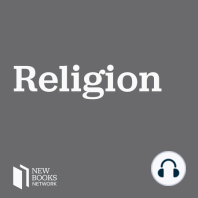56 min listen

Jason Josephson, “The Invention of Religion in Japan” (University of Chicago Press, 2012)
Jason Josephson, “The Invention of Religion in Japan” (University of Chicago Press, 2012)
ratings:
Length:
66 minutes
Released:
Oct 13, 2012
Format:
Podcast episode
Description
In 1853, the Japanese were required to consider what the word religion meant when western powers compelled the Tokugawa government to ensure freedom of religion to Christian missionaries. The challenge this request posed was based on the fact that prior to the nineteenth century Japanese language had no parallel terminology for the category of religion. In The Invention of Religion in Japan (University of Chicago Press, 2012), Jason Josephson, Assistant Professor of Religion at Williams College, delineates a genealogy of the Japanese construction of the category of religion, which was catalyzed by this political encounter between East and West. Josephson argues that opposed to the common notion that religion is an ethnographic or academic creation that we can place religion through diplomatic and legal discourses that invent or manufacture an identifiable, yet elastic, category. Prior to this political demand, contact between different Japanese and western social groups were discussed in bilateral descriptions of orthodoxy and heresy, either from a Christian or Buddhist perspective. Added to this developing understanding of terminology were the influences of western science, the negotiation of local practices, and the rise of nationalism. The Japanese depiction of Shinto poses the greatest challenge to customary notions of religion because it is described as a national or political science that is markedly nonreligious. Overall, Josephson demonstrates that in the defining of legal and social categories there was a trinary creation of religion, superstition, and the secular. In our conversation we discuss theocentric and heirocentric definitions of “religion,” the role of the demonic, heresy, varieties of Shinto, theories of secularization, superstition, civilizing projects, personal interior belief versus external behavior, and the institutional confirmation of these beliefs in legal contexts.Learn more about your ad choices. Visit megaphone.fm/adchoices
Released:
Oct 13, 2012
Format:
Podcast episode
Titles in the series (100)
J. D. Bowers, “Joseph Priestley and English Unitarianism in America” (Penn State University Press, 2007): Today we talk to J. D. Bowers of Northern Illinois University about his book Joseph Priestley and English Unitarianism in America (Pennsylvania State University Press, 2007). Against the received wisdom, Bowers argues that American Unitarianism did not... by New Books in Religion